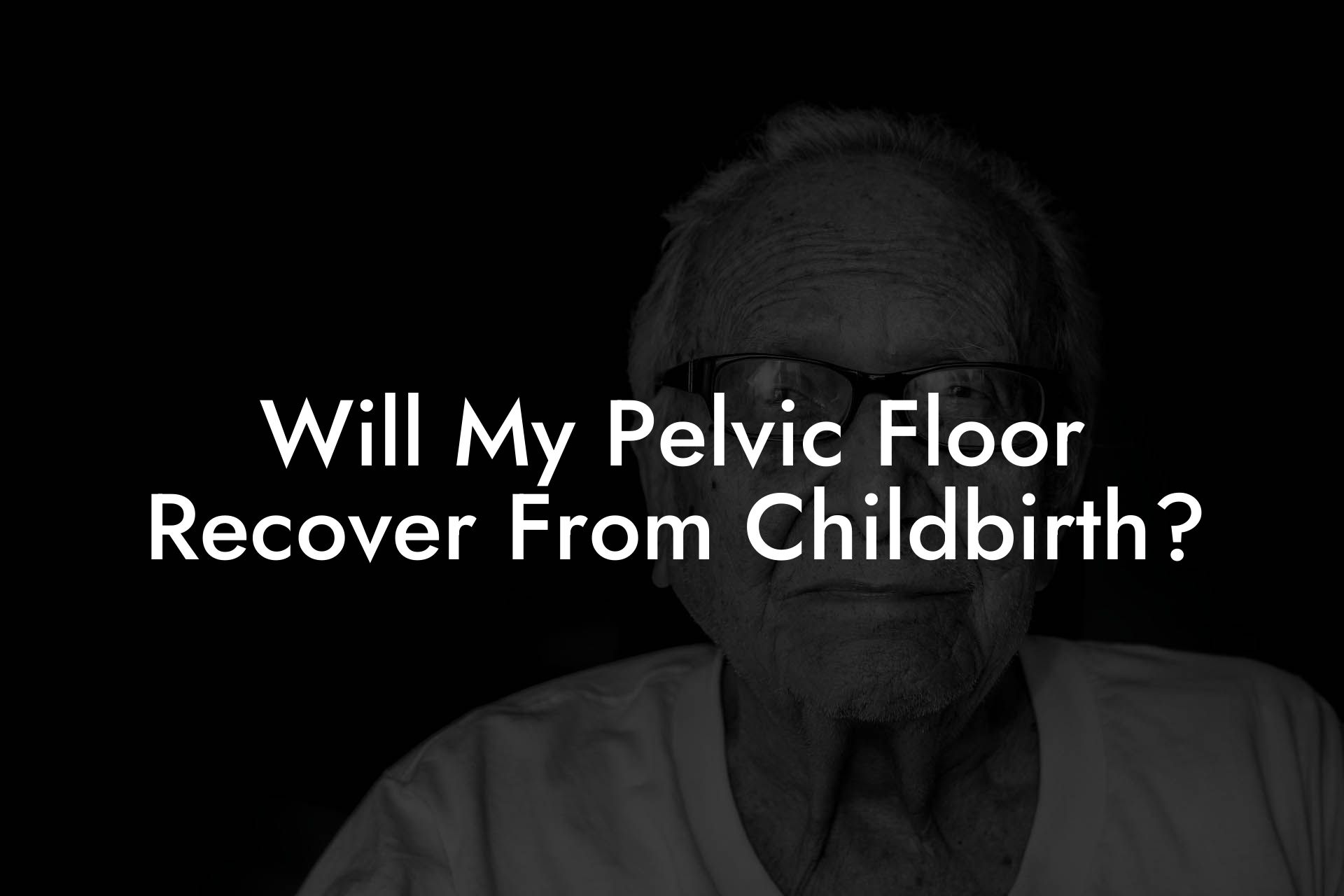The birth of a child brings unparalleled joy and pride to new parents, but it can also be accompanied by some unwelcomed challenges that come with the changes in a mother's body post-delivery. One of the prime concerns is how the pelvic floor muscles respond during and after giving birth. With conflicting information available, women can feel overwhelmed about how to navigate this process. In this comprehensive guide, we will explore the nature of the pelvic floor, the impact of childbirth, and most importantly, whether you will find improvements post-birth. We invite you to share this guide and delve into other resources on Pelvic Floor Therapy to support your journey.
Will My Pelvic Floor Recover From Childbirth Table of Contents
The Pelvic Floor: A Brief Overview
Childbirth and Its Impact on the Pelvic Floor
Transform Your Pelvic Floor in Just 4 Weeks: The Pelvic Floor Bible
Incorporating pelvic floor exercises
Getting Professional Help: Pelvic Floor Therapy
Transform Your Pelvic Floor in Just 4 Weeks: The Pelvic Floor Bible
The Pelvic Floor: A Brief Overview
In a nutshell, your pelvic floor is a layer of muscles that stretch like a hammock from the pubic bone in the front to the tailbone at the back. This complex structure supports your uterus, bladder, and bowel, and plays an essential role in their optimal function. It also plays a crucial part in sexual health and maintaining continence.
Childbirth and Its Impact on the Pelvic Floor
During pregnancy, the weight of your developing baby puts pressure on the pelvic floor muscles. This added strain weakens them and reduces their support to the pelvic organs. Moreover, during vaginal delivery, these muscles stretch significantly to accommodate the baby's passage through the birth canal. This further contributes to the weakening and stretching of your pelvic floor muscles, sometimes causing tears or an episiotomy.
After giving birth, you may experience symptoms that indicate a weakened pelvic floor. These may include urinary incontinence, where you may accidentally leak urine when you laugh, cough, or sneeze. You might also face difficulty in controlling gas or bowel movements. Additionally, some women experience sexual discomfort or pelvic organ prolapse, where the pelvic organs descend due to weakened support.
Recovery: A Realistic Outlook
Now, let's address the burning question: will your pelvic floor recover from childbirth? The good news is that, in most cases, it can recover, but your journey towards a complete recovery will depend on factors such as the severity of the damage, the number and type of deliveries you have experienced, and the amount of time it has been since the birth.
For many women, the first six months after childbirth show significant improvement in pelvic floor function. During this period, you could actively work on regaining strength and support by engaging in pelvic floor exercises and making lifestyle changes recommended by medical professionals. For a more guided approach, consider seeking help from a pelvic health physiotherapist.
Incorporating pelvic floor exercises
With your healthcare provider's approval, starting simple and targeted pelvic floor exercises (Kegels) around six weeks after vaginal birth, or when pain has subsided, can help speed up the recovery process. These exercises involve contracting and relaxing your pelvic floor muscles, in turn, strengthening them over time. Additionally, it is crucial to learn how to activate and relax your pelvic floor correctly to prevent over-exercising or creating undue pressure.
Getting Professional Help: Pelvic Floor Therapy
Pelvic floor therapy, involving professional guidance from a pelvic health physiotherapist or expert, can prove to be extremely beneficial for those with more complex pelvic floor challenges. They tailor exercises to suit the individual's needs and may use biofeedback to help improve muscle awareness and control.
In conclusion, while there is no "one size fits all" answer to the question of pelvic floor recovery after childbirth, most women can expect to see improvements with proactive self-care and support from healthcare professionals. It is essential to be patient and commit to a tailored approach for your unique needs. With the right guidance, your journey towards a stronger and more functional pelvic floor is possible. Feel free to share this insightful post with other new mothers facing similar concerns, and continue exploring Pelvic Floor Therapy for a wealth of resources on regaining pelvic health.













